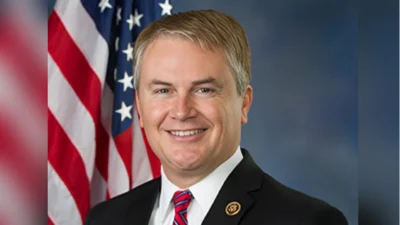WASHINGTON -- Today, in conjunction with comprehensive health reform legislation, House leaders introduced a bill that would permanently reform the Medicare physician payment system. The Medicare Physician Payment Reform Act (H.R. 3961) will repeal a 21 percent fee reduction scheduled for January 2010 and replace the physician payment formula with a more stable system that ends the unrealistic cycle of threats of ever-larger fee cuts followed by short-term patches. When considered in the House, H.R. 3961 will also include Statutory PAYGO legislation.
Permanent reform of physician payments in Medicare will guarantee that Medicare beneficiaries continue to enjoy the excellent access to care that they do today. It will also follow the President’s lead by ending a budget gimmick that artificially reduces the deficit by assuming physician payments will be cut by 40 percent over the next several years, even though Congress has consistently intervened to prevent those cuts from occurring. Indeed, the CMS actuaries caveat their projections for Medicare spending because they cannot actually estimate the effects that the cuts would have on the other parts of Medicare. Correcting the flawed formula is a critical step to ensure a more realistic and accurate budget outlook.
"Fixing Medicare`s broken physician payment system helps ensure that seniors and the disabled will continue to have access to their doctors," said Ways and Means Committee Chairman Charles B. Rangel (D-NY). "It is also an important step in achieving the broader goals of slowing cost growth and improving quality in our health care system. I am committed to working with my colleagues to enact a comprehensive and permanent solution as soon as possible."
“The introduction of this companion legislation shows our commitment to preserving seniors’ access to care remains as strong as ever," said Energy and Commerce Chair Henry A. Waxman (D-CA). “H.R. 3961 is a responsible approach to putting physician payments in Medicare on a stable, sustainable footing for the long term."
"It is time to stop passing short-term fixes for massive payment cuts that hurt physicians and threaten Medicare access for seniors and people with disabilities," said Rep. Pete Stark (D-CA), House Ways and Means Health Subcommittee Chairman. "This bill will make the payment system work better not just for physicians, but also taxpayers, beneficiaries and the Medicare system as a whole."
"Democrats have been calling for a permanent fix to the Medicare physician payment problem for years," said Energy and Commerce Health Subcommittee Chair Frank Pallone (D-NJ). "We have now taken one long step towards ensuring that America’s doctors are paid fairly for quality health care services they provide to seniors and the disabled. We remain fully committed to working with doctors and the medical community to see this bill through to the President’s desk for his signature."
“For too long, our doctors have been forced to do business with great uncertainty," said Rep. John D. Dingell (D-MI), Chairman Emeritus of the House Energy and Commerce Committee. "Year to year, they hold their breath waiting to see if Congress will do the right thing and replace SGR with physician payment system. The time has come to fix this once and for all."
Under H.R. 3961, the SGR would be replaced with a new formula that:
* Removes items such as drugs and laboratory services not paid directly to practitioners from spending targets;
* Allows the volume of most services to grow at the rate of GDP plus 1 percentage point per year (compared to GDP without any adjustment today);
* Allows the volume of primary and preventive care services to grow at GDP plus 2% per year;
* Encourages coordinated, innovative care by allowing Accountable Care Organizations to be responsible for their own growth paths, irrespective of reductions or increases that apply elsewhere in the system.
H.R. 3961 will be considered in the House under a procedure which will add the text of H.R. 2920, the Statutory PAYGO Act of 2009, as passed by the House on July 22nd before being sent to the Senate. The "pay as you go" principle of budget discipline requires Congress to pay for any new spending, outside of an economic crisis. The Statutory PAYGO Act would make that principle law.
Please of the Medicare Physician Payment Reform Act.







